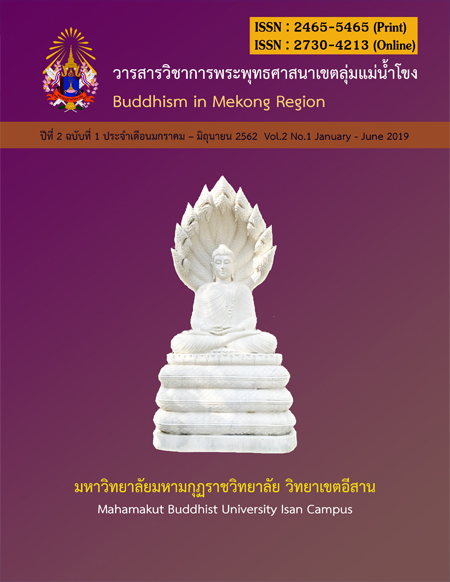Goal-oriented leadership
Main Article Content
Abstract
The path goal leadership theory plays on this concept. It is the strategy of leadership that makes the leader’s task to motivate and clarify the group’s goals, essentially making them a coach. This interpretation holds that the leader empowers the group to reach their goals and ensures that they share an awareness of what those goals are. As the leader you are not only charged with giving your team the carrot but making sure that carrot is what they really want (and that they can eventually get it. Path goal leadership theory encourages a strong communication about goals and direction, with a strong relationship between the leader and the group. With a clear set of requirements and providing the tools to complete them, the leader can build a string of successes toward the end target. In achievement-oriented leadership, the leader sets challenging goals for followers, expects them to perform at their highest level, and shows confidence in their ability to succeed. Participative leadership involves leaders consulting with followers and asking for their suggestions before making a decision. It is similar to the democratic leadership style. In supportive leadership, the leader is friendly and approachable. The leader shows concern for the followers’ psychological being, making the team members more comfortable to pursue their own goals. Goal Leadership refers to the goal, by influencing, motivating, trying, and processes based on goodness includes: 1) having goals 2) influencing motivation 3) trying 4) having a process 5) being good.
Article Details
- ผลงานที่ส่งตีพิมพ์จะต้องไม่เคยเผยแพร่ในสิ่งตีพิมพ์อื่นใดมาก่อนและต้องไม่อยู่ในระหว่างการพิจารณาของวารสารอื่น การละเมิดลิขสิทธิ์ถือเป็นความรับผิดชอบของผู้ส่งบทความโดยตรง
- ต้นฉบับที่ส่งตีพิมพ์ต้องเป็นภาษาไทยหรือภาษาอังกฤษเท่านั้น
- ต้นฉบับต้องผ่านการกลั่นกรองโดยผู้ทรงคุณวุฒิและได้รับความเห็นชอบจากกองบรรณาธิการ
- ในกรณีที่เป็นบทความแปล ต้องได้รับอนุญาตจากเจ้าของลิขสิทธิ์ โดยการขออนุญาตให้เป็นไปตามหลักจริยธรรมสากล
- ข้อความ เนื้อหา รูปภาพ และตาราง ที่ตีพิมพ์ในวารสาร เป็นความรับผิดชอบของผู้เขียนบทความแต่เพียงผู้เดียว มิใช่ความคิดเห็นและความรับผิดชอบของกองบรรณาธิการวารสาร กองจัดการ และมหาวิทยาลัยมหามกุฏราชวิทยาลัย วิทยาเขตอีสาน
6. ผลงานที่ได้รับการตีพิมพ์ถือเป็นลิขสิทธิ์ของวารสาร
References
ชาติชาย คงเพ็ชรดิษฐ์. (๒๕๕๙). การบริหารการเปลี่ยนแปลง: บทบาทของภาวะผู้นาและการสื่อสารในองค์การ.วารสารวิชาการ Veridian E – Journal Silpakorn University ฉบับภาษาไทย สาขามนุษยศาสตร์ สังคมศาสตร์และศิลปะ ๙ ๑ (มกราคม – เมษายน ): ๘๙๗.
เนตรนภา ห่างภัย. (๒๕๔๕). ความหมายของผู้นำ. Online. ค้นเมื่อวันที่ ๒๙ มกราคม ๒๕๖๑ จาก http://www.rin.ac.th/article /leadership/page๑.๑.html
ปิยฉัตร โรจกุล. (๒๕๕๔). บทความผู้นำและภาวะผู้นำ. สืบค้นเมื่อ วันที่ ๒๙ มกราคม ๒๕๖๑ จาก https://www.gotoknow.org/posts/๔๒๓๓๘๐.
พยอม วงศ์สารศรี. (๒๕๓๔). องค์การและการจัดการ. (พิมพ์ครั้งที่๓). กรุงเทพฯ: สภาการพิมพ์.
พระธรรมปิฎก (ป.อ. ปยุตโต). การศึกษากับการพัฒนาทรัพยากรมนุษย์. พิมพ์ครั้งที่ ๒. กรุงเทพฯ: มูลนิธิพุทธธรรม, ๒๕๔๒
ไพบูลย์ วัฒนศิริธรรม. (๒๕๔๗). สำนึกไทยที่ปรารถนา. กรุงเทพฯ: เดือนตุลา.
พงษ์เทพ สุขธนารักษ์ (๒๕๕๔). “ความหมายของ ภาวะผู้นำ” สืบค้นเมื่อวันที่ ๒๙ มกราคม ๒๕๖๑ จากhttps://www.gotoknow.org/posts/๔๔๔๙๗๑
พระครูสุธีจริยวัฒน์. (๒๕๕๘). ภาวะผู้นำหลักธรรมและกระบวนการเรียนรู้เพื่อสร้างสรรค์. ขอนแก่น: คลังนานาวิทยา
ภาวิดา ธาราศรีสุทธิและวิบูลย์ โตวณะบุตร. (๒๕๔๒). หลักและทฤษฎีการบริหารการศึกษา. กรุงเทพฯ: สำนักพิมพ์มหาวิทยาลัยรามคําแหง.
มัลลิกา ต้นสอน. (๒๕๔๔). พฤติกรรมองค์การ. พิมพ์ครั้งที่ ๒ กรุงเทพฯ: บริษัท เอ็กซ์เบอร์เน็ท จำกัด.
รังสรรค์ ประเสริฐศรี. (๒๕๔๔). ภาวะผู้นำ. กรุงเทพฯ: ธนชัชการพิมพ์. รัฐธรรมนูญแห่งราชอาณาจักรไทย พ.
วิภาดา คุปตานนท์. (๒๕๔๔). การจัดการและพฤติกรรมองค์การ. กรุงเทพฯ: โรงพิมพ์ ส เจริญ การพิมพ์.
ศักดิ์ชัย ภู่เจริญ. บทความ พัฒนาองค์กรสู่ความสำเร็จ สืบค้นเมื่อวันที่ ๒๙ มกราคม ๒๕๖๑ จากlhttp://www.kruinter.com/shw.php
เสริมศักดิ์ วิศาลาภรณ์. (๒๕๔๔). การบริหารแบบมีส่วนร่วมใน ประมวลสาระชุดวิชาทฤษฎี และ แนวปฏิบัติในการบริหารการศึกษา. หน่วยที่ ๑๒. หน้า ๑๘๓-๑๘๔ นนทบุรี มหาวิทยาลัยสุโขทัยธรรมาธิราช.
อรุณรุ่ง เอื้ออารีสุขสกุล. (๒๕๕๙). ภาวะผู้นาการเปลี่ยนแปลงเปลี่ยนความท้าทายมุ่งสู่ความสำเร็จขององค์การอย่างยั่งยืน วารสารวิชาการ Veridian E–Journal Silpakorn University ฉบับภาษาไทย สาขามนุษยศาสตร์สังคมศาสตร์และศิลปะ ๙ ๑(มกราคม – เมษายน ): ๘๔๖.
Hersey P. & Blanchard K. (๑๙๘๘). Management of organizational behavior. Englewood Cliffs New Jersey: Prentice Hall.
Phinit Kotakarn. (๒๕๕๙). บทความ“ผู้นำและภาวะผู้นำกับความสำเร็จขององค์การ” ค้นเมื่อวันที่ ๒๙ มกราคม ๒๕๖๑ จาก https://www.google.co.th/searrch.
Susan Ward. (๒๐๑๗). Leadership Definition. Retrieved January ๑๘ ๒๐๑๘ from https://www.thebalance.com/leadership-definition-๒๙๔๘๒๗๕


